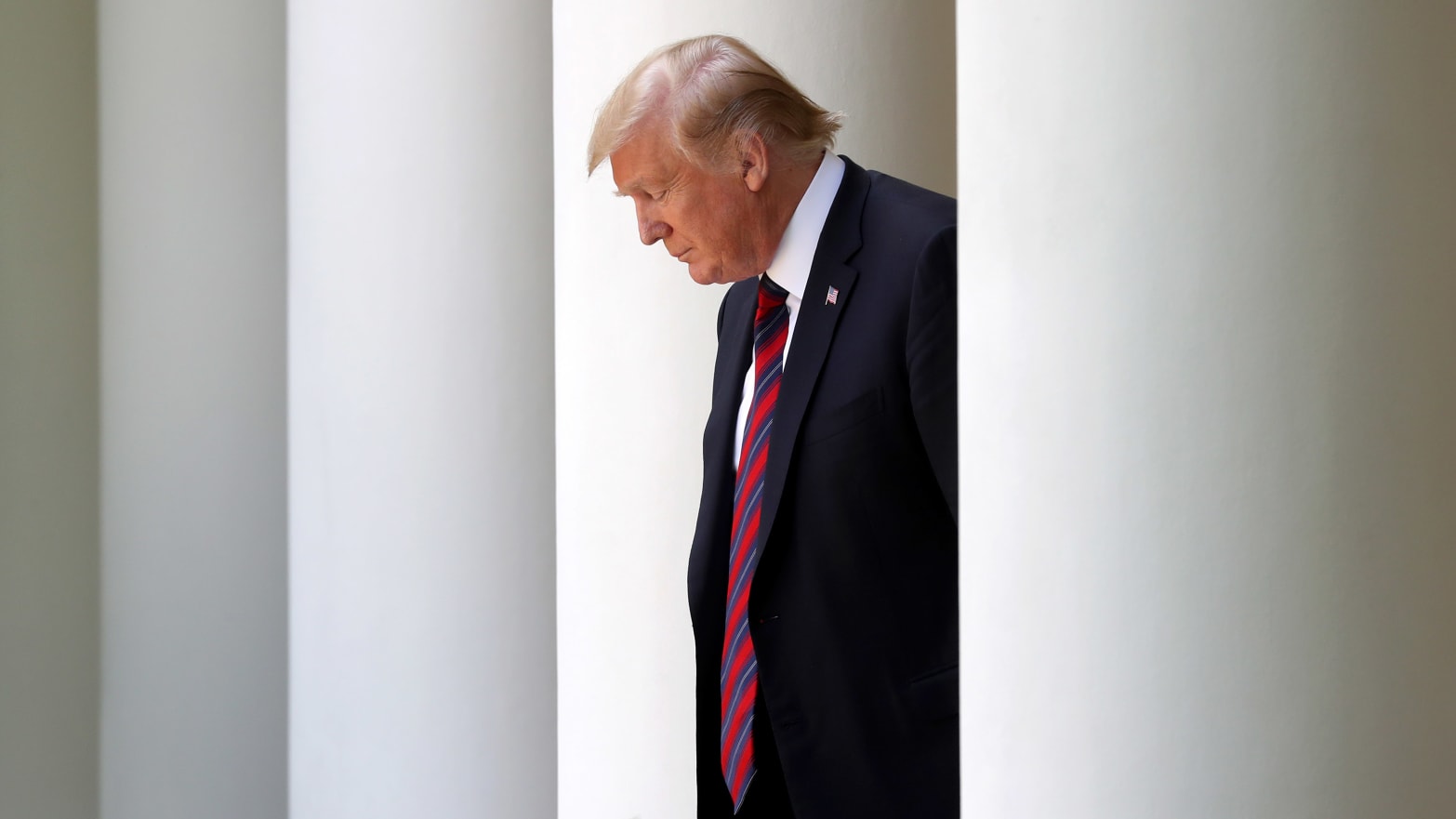Young, mostly male, and overwhelmingly white judges appointed by President Trump are on the cusp of remaking the once reliably liberal Ninth Circuit of the Court of Appeals, the nation’s highest court below the Supreme Court.
The “very, very liberal circuit,” as then Attorney General Jeff Sessions once put it, covers the American West, including California as well as Alaska and Hawaii. Trump himself has called it “totally out of control,” a “big thorn in our side,” a “complete and total disaster,” and a “disgrace.” At one point, he said, “It would be great if the 9th Circuit was indeed an ‘independent judiciary’”—his scary scare quotes.
Now the Senate has been racing to give lifetime seats on its bench to Trump judges whose pro-business jurisprudence and regressive social views are out of step with much of the country, including Democrats and younger Americans.
“The Ninth has been the circuit that immigrants, women, people of color, public health and safety advocates look to for resolution of critical issues,” says Nan Aron, founder of Alliance for Justice, a liberal advocacy group. “Because of the court’s reputation, Donald Trump and his ilk have had their knives out for the Ninth Circuit.”
Trump has lambasted the Ninth Circuit at points for ruling against his Muslim ban, his attempt to withhold federal funds to immigrant-friendly sanctuary cities, and his effort to end the DACA program (Deferred Action for Childhood Arrivals).
And like clockwork, legislation is regularly introduced in the Congress to split the circuit in two. The latest effort, by Senator Martha McSally, Republican of Arizona, would create a “Twelfth Circuit” that would wall off California with Hawaii, Guam, and the Mariana Islands.
That won’t happen and it won’t be needed at the rate Trump is going.
When Trump took office, the Ninth Circuit had 19 Democratic appointees, only 6 Republican appointees, and four vacancies. In the last ten days, the U.S. Senate confirmed two Trump nominees, Kenneth Lee and Daniel Collins, with a third, Daniel Bress, awaiting a hearing Wednesday morning. If he is confirmed as expected by the Judiciary committee, Trump will have appointed seven judges to the Ninth Circuit, bringing the circuit close to a tipping point if, as Trump has often said, each judge rules in line with the views of the party that nominated them. There is one remaining vacancy, with eight of the Democratic-appointed judges eligible for senior status, which they are unlikely to take given the political stakes and as the odds of a panel of judges now skewing Republican keep going up.
Trump has appointed around a third of the judges on the conservative Fifth, Seventh, and Eighth Circuits. The Third and Eleventh Circuits had a majority of judges appointed by Democrats until Trump. Now the majority of the Third Circuit judges are Republican; the Eleventh Circuit is evenly divided between Democrats and Republicans.
The home state senators for the latest Trump nominees, Dianne Feinstein and Kamala Harris, did not return their “blue slip” to allow the nominations to go forward. The blue slip is a Senate tradition that Republican leader McConnell scrupulously followed for President Obama’s nominees, effectively blocking dozens of Obama judges for consideration when a red-state senators had a concern.
“When I got in, we had over 100 federal judges that weren’t appointed. I don’t know why Obama left that. It was like a big, beautiful present to all of us. Why the hell did he leave that?” Trump exclaimed.
With blue-state senators registering concerns now, McConnell no longer seems concerned with tradition. Senator Harris, who is running for president, will be in the hearing to question Bress. Her main objection is that he is not a California lawyer, but has been living and voting in Virginia for the last decade.
When the White House first floated Bress' name in the fall of 2018, his law firm’s web page showed him based in Washington. It touted him as one of “D.C.’s rising stars.” The site has since been updated with a California phone number.
The 40-year-old Bress worked as an attorney in San Francisco for only one year before joining Kirkland & Ellis in D.C., which coincidentally is Attorney General Barr’s former law firm.
At a March hearing of the Judiciary Committee, Chairman Lindsey Graham said “having a nominee to the circuit court with very little connection in California bothers me.”
Graham said he would take it up with the White House to see if they could come up with a consensus candidate. “We’ve since learned he (Graham) has gotten very comfortable with this,” a Hill aide told the Daily Beast. Bress clerked for the late Justice Scalia, and is an apparent adherent of Scalia’s originalist views about the Constitution. Republicans are expected to wave him through with a floor vote next month.
“I warned my colleagues about this, but was told it will never happen. Now it has," said Sen. Sheldon Whitehouse of Rhode Island. "Voting for Daniel Bress will complete the destruction of the only rule protecting home-state senators’ interest in their own state’s circuit seats. In the mad rush to pack the Court with donor-friendly judges, Republicans have paved the way for out-of-state interests to decide their own states’ appeals, and have no right to complain when that day comes.”
The Senate last week confirmed Kenneth Lee, a first-generation South Korean immigrant who was an associate counsel to President George W. Bush. Democrats tried to block him by surfacing controversial writings from his college days when he wrote in 1994, “whenever minorities do not succeed, they cry racism,” and opined that one reason for the AIDS epidemic was that “homosexuals are generally more promiscuous than heterosexuals.”
Similar extremist and retrograde views forced the White House to withdraw an earlier nominee, Ryan Bounds. But Lee’s explanation satisfied Republicans.
“When you’re young, you think you know everything and not only that, you think everyone else is wrong,” he told the Senate Judiciary Committee in March.
This week, on Tuesday, the Senate confirmed Daniel Collins, who along with Lee and several other recent Trump nominees refused to say that Brown v Board of Education, argued 65 years ago, was correctly decided. He was in George W. Bush’s Justice Department where he helped formulate and defend the Patriot Act. Collins is a well-known defender of the oil industry in climate and environmental cases, and has been a critic of the Affordable Care Act and an advocate for the religious exemption on contraceptives. He has questioned the validity of reading people who are arrested their Miranda rights.
Collins will take the seat previously occupied by the late Harry Pregerson, who together with the late Stephen Reinhardt, forged the liberal reputation that defined the Ninth Circuit and drove conservatives crazy. Rush Limbaugh called it the “Ninth Circus.” Reinhardt was known as the “liberal lion.” He wrote the opinion that overturned California’s ban on same-sex marriage. When Pregerson was questioned at his 1979 confirmation hearing, he told the senators, “If I had to follow my conscience or the law, I would follow my conscience.”
Trump’s true believers might do the same thing, but they would never say it out loud.

